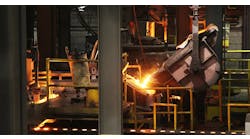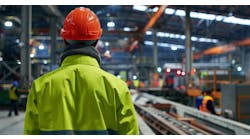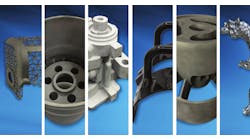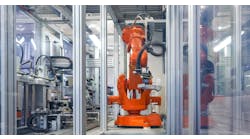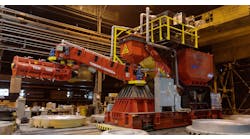An hour-long presentation I watched recently laid out how the past 12 months of industrial-equipment orders give force to the argument that economic conditions for U.S. manufacturing are solid, and that the long-term outlook is positive for economic growth. There is an argument for that position, but I’m not certain that capital spending is part of it. Something about it just didn’t feel right.
“Information moves markets” has been the message of stock tipsters and market players since the 18th century, but in our present time the meaning of that message is more disputable. No one disputes the value of information, but having spent two decades congratulating ourselves for living in the Information Age we now work to curate our thinking and messaging to combat the ideas we don’t want to accept. We want our facts – and for some discouragingly increasing number of people, our feelings – to be the truth that the rest of the world must acknowledge.
Let me state this more pragmatically: We have to be cautious about what we say and to whom we speak because too many people will become resentful or hostile, or accusatory, because we do not or cannot endorse their ideas or feelings. We are well past the time when modesty and civility would have prevented this sort of problem. To the extent that civil discourse is promoted it is not to maintain individuals’ rights but to minimize the liability of businesses and media platforms.
This an important development that unfortunately is minimized when people accuse their opponents of engaging in “fake news,” because much of the information promoted to us is specious and irrelevant. It would be accurate to say that we have now proceeded into the Disinformation Age, when the volume of ideas and propositions that ordinary people must digest and accommodate in the course of daily work and social interaction is so demanding of their time and patience that they ignore ideas that are algorithmically prepared and served to them.
This is why it was important when the July economic reports were delivered, showing a second consecutive quarter of negative economic growth. For the past five decades, that standard has been used as proof that the economy is in recession. Nevertheless, the government officials and business leaders who are likely to be held responsible for a recession, confidently presented a case that there is no recession – and everyone else is wrong.
And then I spent that hour listening to the presentation on capital spending. Now, I agree that capital spending is a good indicator of growth: it demonstrates businesses’ confidence in their own enterprises and their prospects for growth, and it shows some consensus among financial and industrial players on the strategies each is taking in the current economic climate.
Capital spending happens for two reasons: the business laying out the capital has a need, such as an ongoing or forthcoming work order that must be completed, or a plan to gain that order in the foreseeable future. Preliminary to making that spending decision, the investor has to know where he will access the capital he’s committing. The trends borne out over the last 12 months do not show those things: They show a sputtering and misfiring supply chain, a global market beset by conflicts and threats, with shortages of raw materials, energy, and labor. And, those same 12 months show a steady rise in the cost of everything – energy, raw materials, labor, finished goods, services of all types.
The presenter argued that the two quarters of non-growth in the economy are the result of all the external forces undermining economic activity: the supply chain, the Russia-Ukraine war, and inflation. And he pointed out that even with these complications capital spending is on pace with 2021 levels – and that overall U.S. employment is growing at a very brisk rate, which portends stability in the consumer sector to support manufacturing demand.
So, the argument is not that capital investment has been good or is set to improve, or that the external forces are likely to change – but that the current economy only feels like a recession.

